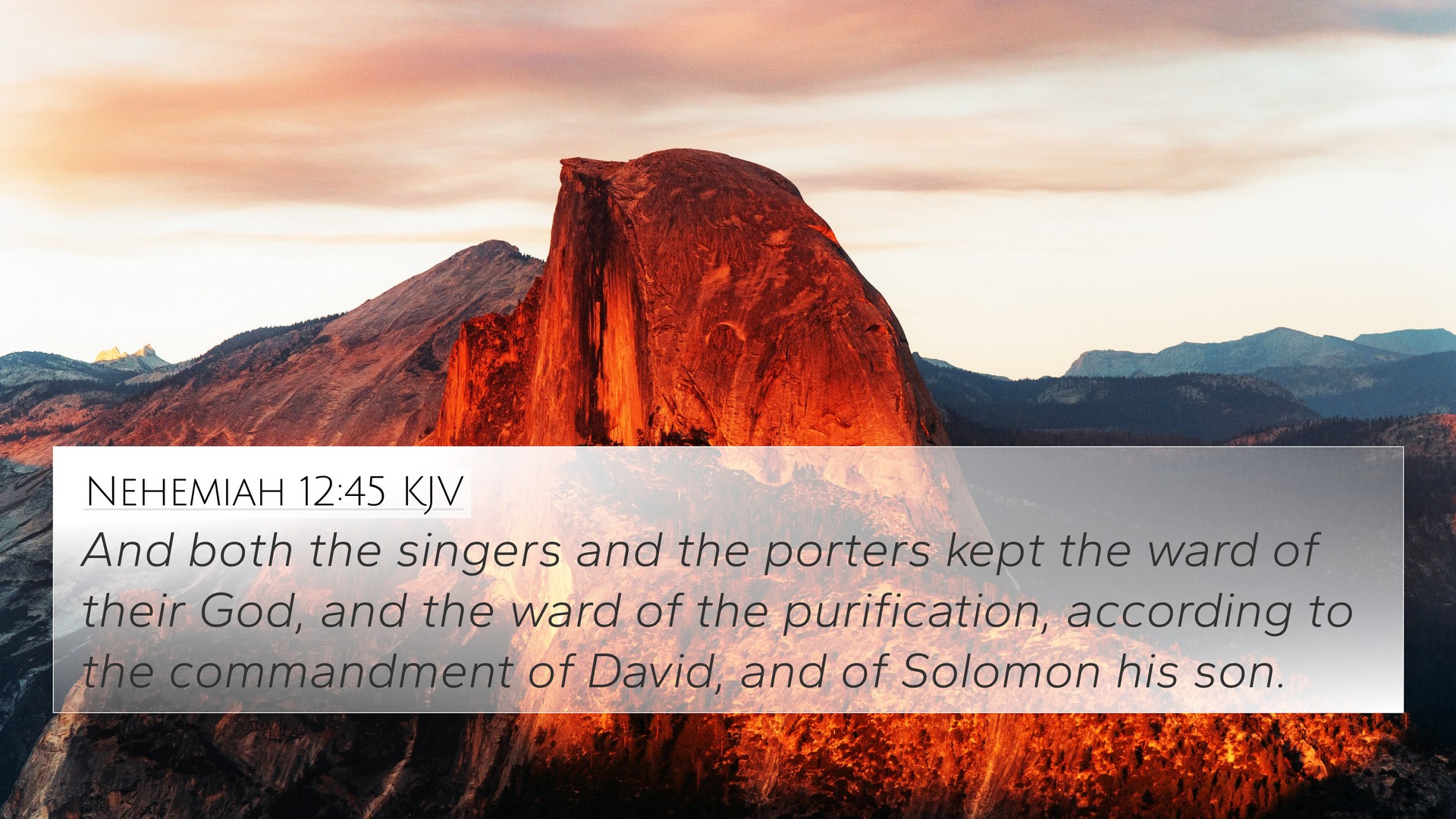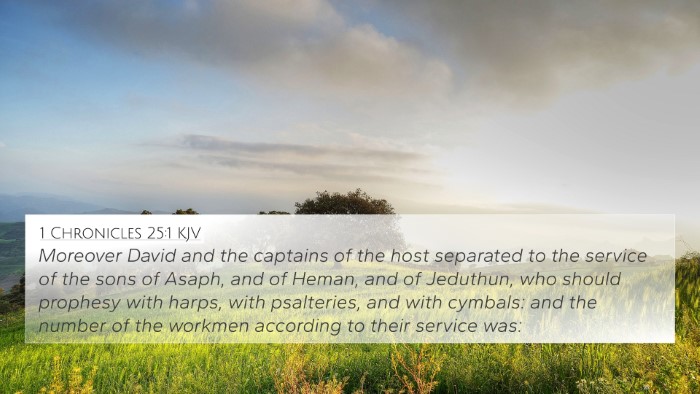Understanding Nehemiah 12:45
Bible Verse: Nehemiah 12:45 states, "And they performed the service of their God, and the service of the purification, and the singers and the porters, according to the commandment of David, and of Solomon his son."
Overview of the Verse
This verse highlights the dedication and service of the Levites, singers, and keepers (porters) in a restored Jerusalem, focusing on their roles in worship and maintaining holiness as decreed by David and Solomon. It reflects the importance of structured worship and the continuity of religious practices.
Commentary Insights
Matthew Henry's Commentary
Matthew Henry emphasizes the significance of the Levites' service, noting that their roles were crucial for the spiritual life of the community. The command reflected the continuity of tradition, linking back to the reign of David and Solomon, showing that worship is a communal act requiring dedication and adherence to God's commandments.
Albert Barnes' Commentary
Barnes points out that this verse not only illustrates the commitment of the people to their duties but also serves as a testament to the restoration of proper worship practices after the exile. He notes that the roles mentioned (singers and porters) had specific functions vital for the worship experience, ensuring that the temple's activities were conducted in an orderly and reverent manner.
Adam Clarke's Commentary
Clarke delves into the historical context, explaining how worship was structured during the time of Nehemiah, reflecting back on the earlier biblical figures such as David and Solomon. He highlights the importance of maintaining purity and devotion in worship as a means to honor God. Clarke also notes that the roles that these individuals held were not merely functional but spiritual, contributing to the overall holiness of the community.
Bible Cross-References
Nehemiah 12:45 connects with several important passages in both the Old and New Testaments, enhancing our understanding of its themes:
- 1 Chronicles 9:22-25: Details the gatekeepers and singers, showing the structured order in the temple worship service.
- 2 Samuel 6:15: Refers to the singing and rejoicing in bringing the ark to Jerusalem, emphasizing the joy in worship.
- Psalm 68:24-26: A psalm reflecting the assembly and worship of God, highlighting similar themes of worship.
- Ezra 3:10-11: Discusses the establishment of worship practices after the return from exile, showing continuity of worship.
- Malachi 1:14: Emphasizes the holiness of service to God, reinforcing the necessity of purity in worship.
- Hebrews 10:22: New Testament reflection on purification and approaching God in worship with a clean heart.
- Matthew 26:30: The disciples singing a hymn after the Last Supper serves as a New Testament parallel to song in worship.
Thematic Connections
Nehemiah 12:45 explores several important themes that resonate throughout the Bible:
- Service to God: The idea of dedicating oneself to God's work is prevalent throughout scripture.
- Purification: The need for holiness in worship is a recurring theme, seen in both the Old and New Testaments.
- Community Worship: The collective aspect of worship as carried out by the community emphasizes the communal nature of faith.
Practical Applications
Understanding Nehemiah 12:45 allows for several practical applications:
- Dedication: Believers are encouraged to dedicate their service to God with the same fervor as the Levites.
- Attention to Worship: Modern worship practices can reflect the structured and intentional nature of ancient worship.
- Community Engagement: Participation in communal worship reinforces the value of unity in faith among believers.
Conclusion
Nehemiah 12:45, when examined through the lens of various commentaries and scripture cross-references, reveals a profound understanding of worship and service to God. By engaging in comparative Bible verse analysis, one can uncover the intricate connections between biblical texts and how they inform modern faith practices.
Through tools for Bible cross-referencing, believers can enrich their study of scripture. By understanding the themes in Nehemiah, one can see broader patterns in worship, service, and community engagement found across the Bible, leading to a comprehensive understanding of God's desire for holiness and dedication in the lives of His people.





